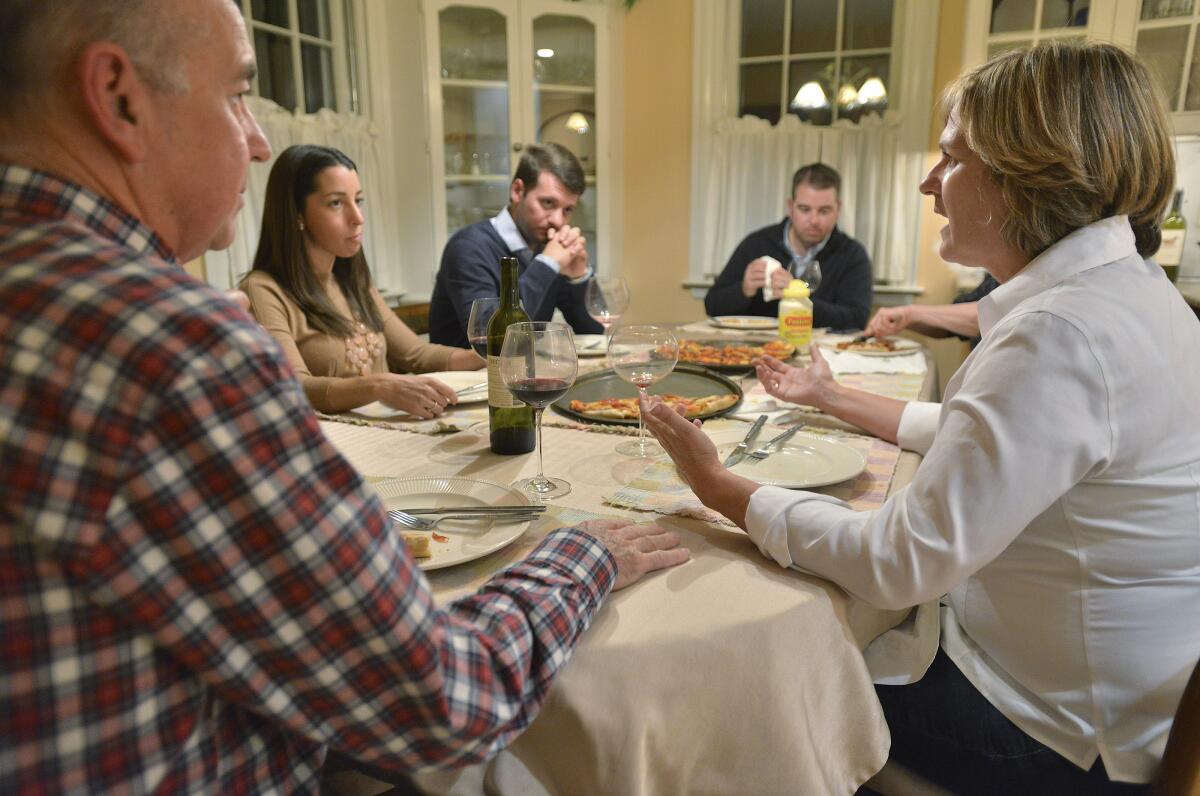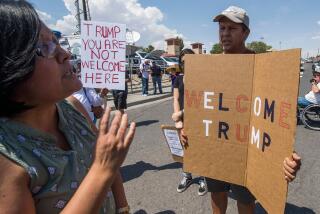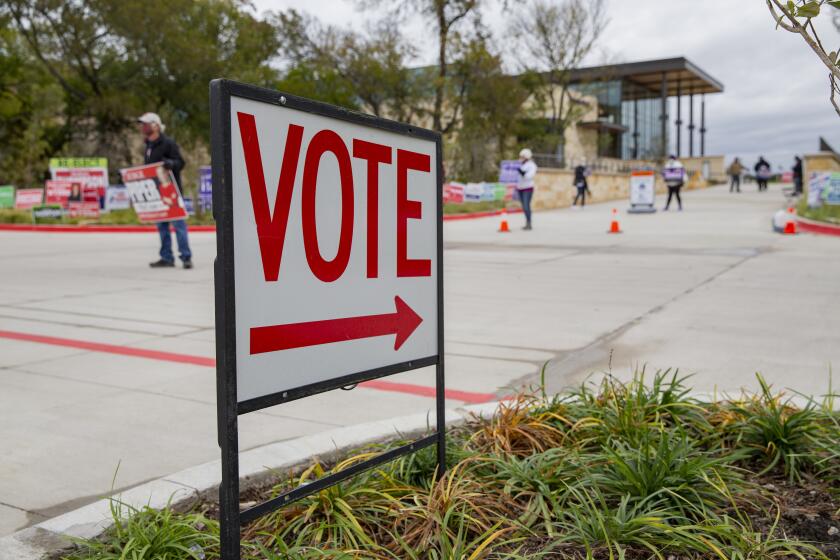Op-Ed: How to talk to your disagreeable uncle at Thanksgiving

Thanksgiving dinners are getting shorter as the heat from partisan hostility rises.
A few years ago, researchers observed that people were spending 30 to 50 minutes less at Thanksgiving dinners if they traveled to precincts where the political voting patterns were different from their own precinct. This was true even after statistically controlling for distance and demographics.
Using anonymized geolocation data from more than 10 million mobile phones, the researchers studied the movements of people who went to areas with similar voting patterns as well as to areas with different voting patterns. They found that people were quicker to leave the dinner table when they were in areas favorable to their opposing political party. Other researchers have found that politically diverse dinners were 24 minutes shorter than those where people held similar political views.
It seems that people would rather skip dessert than risk hearing another one of their uncle’s disagreeable political rants. But there may be ways to bridge this kind of polarization.
One idea dates back to a summer camp experiment in the 1950s when social psychologists found that hostile groups of adolescent boys would come together to solve common problems — like fixing a broken water supply. Building a shared sense of purpose was able to dramatically reduce discrimination and conflict. Of course, these kids didn’t have to tune into the hostile political discourse on TV or listen to a slew of conspiracy theories on social media.
Can creating a shared sense of identity around a common purpose help to bridge the stark political divides of 2022?
To answer this question, a research team at Stanford University created the “Strengthening Democracy Challenge” to test the best ways to cool political hostility and increase support for democracy. Our proposed solution to partisan animosity, selected as one of 25 to test on a sample of 32,000 Americans, focused on highlighting a common sense of identity and shared norms across the political spectrum.
For instance, our message reminded participants that members of both parties support democratic norms. Indeed, we told them almost all Americans — both Republicans and Democrats — say they strongly support freedom of speech and the right to vote, and respect election results. (Only a small, but highly vocal minority of people do not share these values.)
We also told them: “While Americans hold stereotyped views of the other party, the reality is, most Americans are moderate, flexible in their views, want compromise instead of division, and are exhausted by the partisanship and incivility from the media and politicians. Most Americans have more in common with each other than they think.”
People who heard our message reported far less antipathy toward their political opponents. This effect lasted for several weeks — revealing that a message about common identity endured in their thinking.
This was consistent with several other studies where building a common identity was one of the most effective strategies to reduce partisan animosity. Reminding people that leaders from across the political spectrum support democracy can go a long way toward reducing political hatred.
This may seem obvious, but it’s not. There were many proposals in the Strengthening Democracy Challenge that were less effective at reducing political hatred. For instance, telling people that their own political party was dominant seemed only to amplify hostility, rather than reduce feelings of threat. This means that even well-intentioned ideas can backfire.
A growing body of research on partisan animosity can offer insights into reducing family tensions at a turkey dinner. Instead of raising your voice, try the common identity strategy on your great aunt. Or remind your dad, who may vote differently from you, that you share an important set of identities — from family to nationality.
After starting a conversation about your family’s common identity, maybe you can agree on some norms and values you share. Our hope is that such conversations, conducted with respect, can counteract the broader pull of polarization represented on cable news shows, political rallies and social media. Bridging personal divides is not a substitute for deeper societal changes, but it’s also a critical part of the process.
Amplifying conflict is exactly what extremists want, and we need to avoid this trap if we want to maintain a healthy democratic society. If we are unable to get through to family members, then we have little hope of reaching strangers.
Jay Van Bavel is an associate professor of psychology and neural science at New York University. Dominic J. Packer is a professor of psychology at Lehigh University. They are authors of “The Power of Us: Harnessing our shared identities to improve performance, increase cooperation, and promote social harmony.”
More to Read
A cure for the common opinion
Get thought-provoking perspectives with our weekly newsletter.
You may occasionally receive promotional content from the Los Angeles Times.










